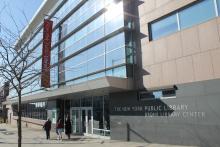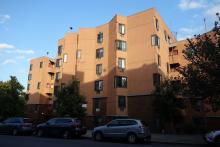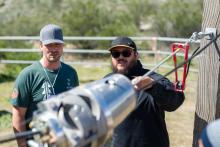By
on

Ponca City, Oklahoma, has long allowed residents to use a city-owned Wi-Fi network at no charge. They make no promises regarding speed or ability to access the network inside the home because the network primarily serves the needs of police, fire, and other municipal departments.
We briefly wrote about this network in our Breaking the Broadband Monopoly report:
Ponca City, with a population of 25,000, took a different approach to their wireless network than Oklahoma City. With some 75% of their staff having at least one responsibility outside the office, building a wireless network was an obvious decision. The network provides additional safety to police officers – who have cameras that may be monitored from the station in real time in case of problems. City employees can now use VOIP phones instead of the cellular network, which has significant gaps in coverage throughout the city. Like Oklahoma City, reducing cellular charges has created considerable savings. They also chose a Wi-Fi mesh system because it provides durability even if some of the nodes fail – the network routes around the problem. They started with some 500 wireless nodes to cover thirty square miles but have since decided to expand the network across a larger footprint. Ponca City is somewhat unique in its decision to open spare capacity on the network to the public for no charge, in an effort to help those who could not afford Internet access on their own. Like Oklahoma City, they too received an award for their network – the 2009 Municipal Innovations Award from the Oklahoma Municipal League.The City upgraded the network last Tuesday night to double the available capacity:
Since the City of Ponca City installed free Wi-Fi, the number of users and the amount of Internet used has surpassed anyone's expectations. The current number of unique users is more than 10,000 a day with more than 800 Gigabytes of Internet used in one day. This is more wireless Internet than anywhere else in the United States, Ponca City's Technology Services Director Craige Baird said.
Geoterm







